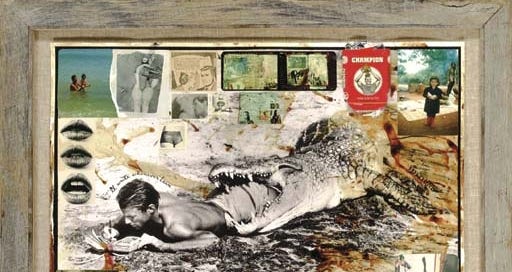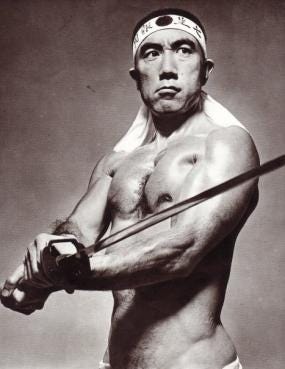Greetings friends and Happy Easter Season,
Some time before the first-wave pandemic, I found myself overworked in the straight world for the first time since Navy seafaring days. At Austin Community College I was both teaching film courses and working in the campus managers’ office when I found myself recruited to also teach an experimental film course at the University of Texas. This came about thanks to my friend Kathleen Tyner, whose husband Scott Stark ran the experimental cinema collective in Austin of which I was a contributor, curator and writer. Consequently, the work on my still-uncompleted documentary and eventually-completed book, two components of a single project about my late uncle, was more or less put on hold. I was too busy, overcharged and exhausted to really engage in any such difficult, meticulous and time-consuming work; however I soon discovered that not doing anything creative for an extended period of time was detrimental to my health in a number of different ways. Whatever form some new creative outlet would take, I decreed that it had to allow me to relax, to muse while keeping my mind active, and that its works would be on a very small scale in both form and time invested, each installment to be accomplished in an hour or less. A meditative exercise if nothing else.
As I said, I wasn’t able to work on my big multipronged project due to lack of time and energy, and perhaps just sheer laziness, and what meager so-called leisure time I managed to claw out of the days was spent reading and watching films as usual. I had been on something of a Japanese kick, watching a lot of Kurosawa, Oshima and Ozu films, Japanese gangster B-movies, and arthouse folk horrors like Onibaba, Ugetsu and Kwaidan along with Paul Schrader’s The Yakuza and Mishima and the like. I was also reading a lot of Yukio Mishima at the time, along with Shusaku Endo’s religious works, tracts on Zen Buddhism and Samurai philosophy, books on Japanese history and culture (Chris D.’s bizarre and epic film encyclopedia Gun and Sword was an odd standout), and research on the controversial Macrobiotic cult of George Ohsawa, of whom my late uncle had been an early key disciple in the 1960s.
Perhaps inspired by such Japanese film and literature, I felt the need to return to writing poetry, a practice I had invested myself in since I first learned to write but one which I hadn’t made enough time for in recent busy years. I was further inspired by the work of a younger generation of American poets- A. Van Jordan and Michael Robbins in particular- who were taking up cinema as a theme for entire volumes of their verse.
Long ago seemed the days when I had filled notebook after notebook with Beat Generation and Henry Miller-derivative free verse that acted as a chronicle of my life and times. It was now time to shake the dust from my youthful warrior poet incarnation and return him body and soul to the bloody arena that was the holy art of Poetry.
Out of all this chaos, a vital and culturally divisive new verse form soon emerged: The Cinemaiku.
Upon closer inspection of my digital archives, I seem to have muddled the timeframe a bit in my personal history above. It seems that some of my earliest Cinemaiku were actually composed much earlier than I remembered, as far back as 2010 or thereabouts, and that I had merely returned to and hopefully refined the form almost a decade later when things got hectic. Be that as it may, the project was plagued by controversy from its very inception. The rules and conventions of the traditional haiku- the form of which my new genre mimicked- are to this day still not definitively agreed upon and unilaterally defined. I was called a charlatan in certain circles, a decadent late-era post-post-post-postmodernist in other quarters, and I was ultimately excommunicated from the Association of New Arcane Literature and Verse, the council of which I had long sat upon. I attributed all this to the petty malicious jealousy of my peers and pleaded my case thus: If one adheres to the belief that the only real constraints in writing a haiku are the simple three-line, five syllable/seven syllable/five syllable structure that attempts to capture an idea, a situation, a sensation, experience or emotion, then readers of Thee Cinemaiku would in fact likely grant me haikudom in many of the pieces that follow. I’m sure I failed the orthodox form in many other regards, particularly when each of the three lines of certain poems do not stand succinctly on their own as a cohesive unit but often continue directly on into the next in the manner of a run-on sentence.
But these are Cinemaiku, not rule-laden orthodox haiku; they are roughly in the traditional haiku form but their themes relate exclusively to Cinema: That is, to actors and directors and particular movies I was inspired by and encounters and experiences with the same. And so, unlike traditional haiku but like movies themselves, the poems do have titles, and these often act as the first line of the poem and can contain any number of words, syllables, numerals and symbols. The poems are also at times riddles to be solved by inquisitive cineastes, although many are fairly obvious I would think. Therefore, strictly speaking they are not haiku at all.
I hope you enjoy these little poems. Volume One below consists of a longer introductory poem and 14 proper Cinemaiku. A final Cinemaiku by Sherry D. acts as a sort of coda to the volume; Sherry has written a few of her own over the years as well as contributing to some of mine and she has been after me to share some of Thee Cinemaiku with the reading public for a few years now (she is also currently involved in other exciting innovations on the Japanese front but hush hush for now).
So here you are. Adhere to these rules and send me your own Cinemaiku and I’ll post them here with Volume Two in the future. Watch your syllables! Thank you as always for reading.
Thee CINEMAIKU
Volume One
For The Puffin…
Ode (2002)
To Cinema…
Old friend
How you have faded before my eyes
With moth holes and cigarette burns
And sound crackles of your age
And a reel or two missing.
You were so much the elder
Yet I felt we both,
In sweet embrace,
Were for all time.
Immortal.
T’was a mirror you held before me
That I might capture the moment
Holy.
And behold,
All I was ever to be
Beauty and Style and Grace.
The Tak-Tak-Tak of the Dreammaker.
Others may sicken and fall away,
Their ashes scattered in 24-frame-per-second winds.
But not you and I.
We watch the universe unfold
And never miss a beat.
You have stayed the course.
Must you slip into the sunset
Without your fondest lover?
Forever,
You promised.
And I see now you never lied.
For it is I who must fall away
As your bright eye,
A beacon in a dark realm,
Flickering imperceptibly,
Will shine for all
Forever.
5-29-2010
The Rebel Giant
He’s Riding Easy at Last
Out of the Blue now
GAZARRA VITELLI
Johnny C.’s Cosmos
Hyper-realist/ absurdist
Galaxy of grit
BONO’S DAUGHTER
There was Sean Penn and
Will Oldham and David Byrne
This Must Be the Place
5-7-2013
He was the reason
A boy abroad in Iran
Played with dolls not balls
LIVING AT THE MOVIES
Ice Palace, Pars Club,
Euless Showcase, Irving Mall.
A boy’s soul found peace
BERTOLUCCI’S TRAMP
City Lights grow dim
She is not alone seeing
his face the first time
AT SEA WITH FARRELL AND JORDAN
She may have just been
A girl and not a Selkie,
but love is mythic
JIM SHERIDAN IS MY UNCLE
I reminded him
Of his nephew; he asked me
to play the junkie
LONE STAR SJOSTROM
The face of Ms. Gish
Can stop any Texas Wind
with its pure beauty
LINKLATER UP
It’s hard not seeing
Celine and Jesse for years
Friends I never had
CAZALE
He lit up five films
Before we all lost a star
More like a comet
ROBOBURROGHS
Peter Weller wrote,
“To Phil: Stay out of trouble.”
I’ve lost the photo.
THE GOOD SHEPARD
Hippy punk boho,
Playwright, Hollywood legend,
Renaissance Cowboy.
BIRDLESS NIGHTS AT THE MOVIES
The screen seems lonely,
The theater is too dark,
She is not with me.
Coda (by Sherry D.):
NO TULIPS INVOLVED
Rolling down the road
A man that’s big becomes small
Love overcomes all
Nothing but real human being writing here at Thee Vangarde. This antifascism kills machines. Rock the Casbah and **** the Chatbot!






Thank you for posting these. I just love reading and remembering the fun we had with these little snippets. Great piece sweetie!
Really enjoyed this one! Brings to mind the poem/ode at the beginning of the black Fagan / Film book… It is simply Ode (2001)… such nostalgia every time I read it…